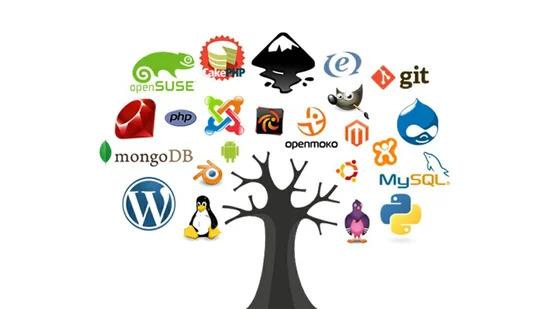Revolutionizing Tech: How Open Source Software Is Shaping the Future

In the ever-evolving landscape of technology, Open Source Software (OSS) stands out as a beacon of innovation and collaboration. It's not just a trend; it's a paradigm shift that is reshaping the future of technology as we know it. At its core, open source embodies the ethos of community-driven development, transparency, and accessibility, paving the way for groundbreaking advancements across various domains.
Understanding Open Source Software
1. What is Open Source Software?
Open Source Software refers to software with source code that anyone can inspect, modify, and enhance. Unlike proprietary software, which is developed and controlled by a single entity, open source projects are collaborative efforts, where developers from around the globe contribute to its development, driving rapid innovation and improvement.
2. The Power of Collaboration
Collaboration lies at the heart of open source development. Through collaborative efforts, developers bring diverse perspectives and expertise to the table, resulting in robust, reliable, and secure software solutions. This collaborative model fosters creativity, accelerates development cycles, and ensures that software remains relevant and adaptive to evolving needs.
3. Accessibility and Transparency
One of the key principles of open source software is its accessibility. By making source code openly available, open source projects empower users to understand how software functions, customize it to suit their needs, and contribute enhancements back to the community. This transparency not only promotes trust and accountability but also facilitates continuous improvement and innovation.
Impact of Open Source Software
1. Driving Innovation
Open source software serves as a catalyst for innovation across various industries. From operating systems and web servers to programming languages and cloud computing platforms, open source technologies power some of the most critical infrastructure and services in the digital ecosystem. By democratizing access to technology and knowledge, open source fuels creativity, entrepreneurship, and technological advancement.
2. Empowering Developers
For developers, open source presents a wealth of opportunities for learning, collaboration, and skill development. Engaging with open source projects allows developers to hone their expertise, contribute to meaningful projects, and build a reputation within the community. Furthermore, the collaborative nature of open source fosters mentorship, knowledge sharing, and networking, empowering developers to grow personally and professionally.
3. Cost Savings and Flexibility
From startups to large enterprises, organizations of all sizes benefit from adopting open source solutions. By leveraging open source software, businesses can significantly reduce software licensing costs while gaining access to powerful, feature-rich solutions. Moreover, the flexibility and extensibility of open source software enable organizations to tailor solutions to their specific requirements, driving efficiency, innovation, and competitiveness.
The Future of Open Source Software
1. Continued Growth and Adoption
As technology continues to evolve, the relevance and impact of open source software will only continue to grow. With an ever-expanding ecosystem of projects, communities, and contributors, open source is poised to drive the next wave of innovation across industries. From artificial intelligence and machine learning to blockchain and edge computing, open source technologies will play a pivotal role in shaping the future of technology.
2. Embracing Open Source Culture
Beyond technology, the open source movement embodies a broader cultural shift towards collaboration, transparency, and inclusivity. As more organizations embrace open source principles, we can expect to see greater emphasis on collaboration, knowledge sharing, and community-driven development. This cultural shift will not only drive innovation but also foster a more sustainable and equitable digital ecosystem.
Conclusion:
In conclusion, Open Source Software represents more than just a technological innovation; it's a testament to the power of collaboration, transparency, and community. By embracing open source principles, we can unlock new possibilities, drive innovation, and shape a future where technology is more accessible, inclusive, and empowering for all.
- Art
- Causes
- Crafts
- Dance
- Drinks
- Film
- Fitness
- Food
- Games
- Gardening
- Health
- Home
- Literature
- Music
- Networking
- Other
- Party
- Religion
- Shopping
- Sports
- Theater
- Wellness
- IT, Cloud, Software and Technology


